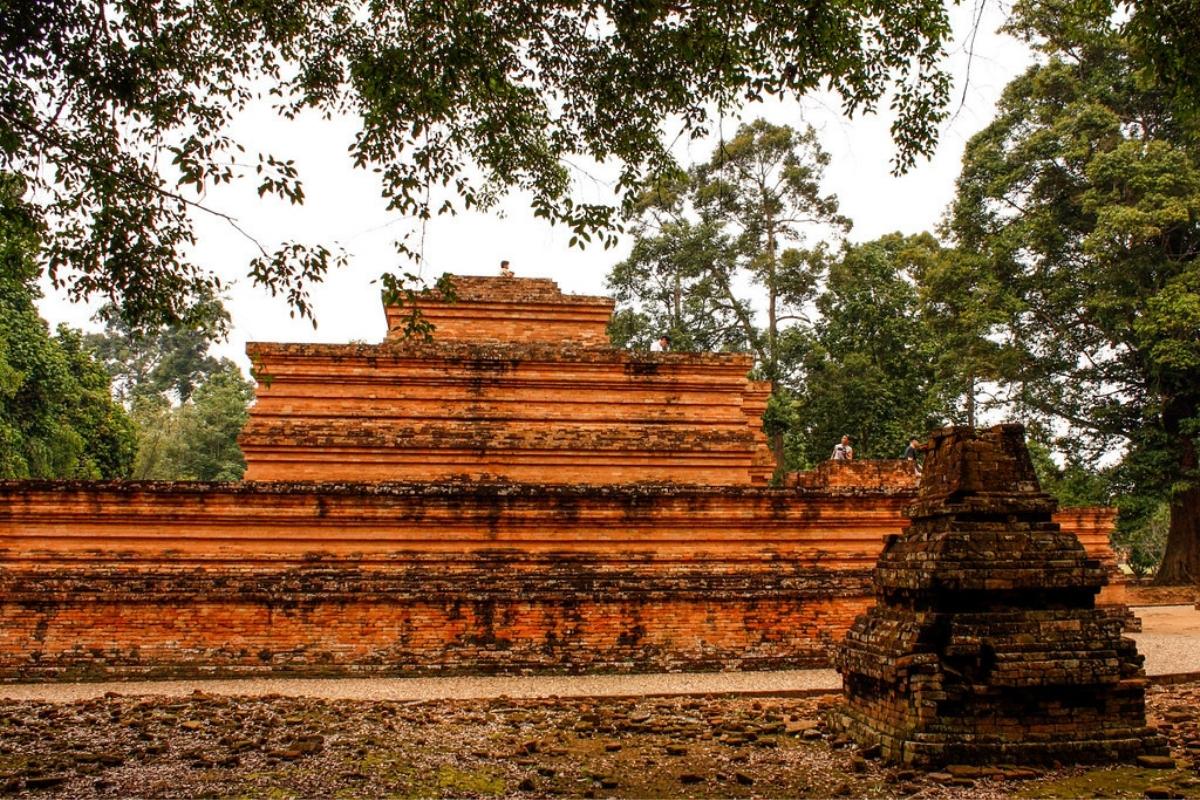
The Subjugation of Jambi is a significant chapter in Indonesian history. This event, which took place in the early 20th century, marked the Dutch colonial forces' efforts to control the Jambi Sultanate on the island of Sumatra. Why is this historical event important? It highlights the struggle between local rulers and European colonial powers, showcasing the resilience and resistance of the Jambi people. Understanding this period provides insight into the broader context of Indonesia's fight for independence. From strategic battles to cultural impacts, the subjugation left a lasting legacy on the region. Dive into these 25 facts to uncover the intricate details of this pivotal moment in history.
Key Takeaways:
- The subjugation of Jambi by the Majapahit Empire changed the region's culture and economy, bringing new influences and integrating it into a larger trade network.
- Key figures like Hayam Wuruk and Gajah Mada played crucial roles in the subjugation, shaping the history of Jambi and Southeast Asia.
The Subjugation of Jambi: An Overview
The subjugation of Jambi, a significant event in Indonesian history, marked a turning point for the region. This historical episode involved complex interactions between local rulers and external forces. Here are some fascinating facts about this period.
- Jambi, located on the east coast of Sumatra, was a thriving center of trade and culture before its subjugation.
- The region was known for its rich natural resources, including gold and spices, which attracted foreign interest.
- The Srivijaya Empire, a powerful maritime kingdom, initially controlled Jambi.
- In the 13th century, the Majapahit Empire began to exert influence over Jambi.
- The Majapahit Empire, based in Java, sought to expand its territory and control trade routes.
- Jambi's strategic location made it a valuable asset for any ruling power.
- The subjugation of Jambi involved both military conquest and diplomatic negotiations.
- Local rulers often had to navigate complex alliances to maintain their autonomy.
- The Majapahit Empire used a combination of force and diplomacy to bring Jambi under its control.
- The fall of the Srivijaya Empire weakened Jambi's defenses, making it vulnerable to Majapahit expansion.
Key Players in Jambi's Subjugation
Several key figures played crucial roles in the subjugation of Jambi. Their actions and decisions shaped the course of history for the region.
- Hayam Wuruk, the ruler of the Majapahit Empire, was instrumental in the expansion efforts.
- Gajah Mada, the prime minister of Majapahit, led many military campaigns, including those targeting Jambi.
- Local Jambi rulers, such as Datuk Paduka Berhala, attempted to resist Majapahit influence.
- The involvement of Chinese traders and diplomats added another layer of complexity to the situation.
- The Ming Dynasty of China had established trade relations with Jambi, influencing local politics.
Cultural and Economic Impact
The subjugation of Jambi had lasting effects on the region's culture and economy. These changes were felt for generations.
- The integration into the Majapahit Empire brought new cultural influences to Jambi.
- Hindu-Buddhist traditions from Java began to merge with local customs.
- The region saw an influx of Javanese settlers and traders.
- Jambi's economy became more integrated with the larger Majapahit trade network.
- The local production of gold and spices continued to be a significant economic activity.
Legacy of the Subjugation
The legacy of Jambi's subjugation is still evident in the region's history and culture. Understanding this period helps us appreciate the complexities of Southeast Asian history.
- The subjugation of Jambi contributed to the spread of Hindu-Buddhist culture in Sumatra.
- Many ancient temples and artifacts in Jambi reflect the influence of the Majapahit Empire.
- The region's history of resistance and adaptation is a source of local pride.
- Modern Jambi still celebrates its rich cultural heritage through festivals and traditions.
- The story of Jambi's subjugation is a reminder of the region's resilience and strategic importance in history.
Final Thoughts on Jambi's Subjugation
Jambi's subjugation by the Dutch in the early 20th century marks a significant chapter in Indonesian history. This period saw the end of Jambi's independence and the beginning of Dutch colonial rule, which brought about profound changes in the region's political, social, and economic landscape. The Dutch imposed new administrative structures, exploited natural resources, and introduced Western education and legal systems. However, this era also sparked resistance and a strong sense of nationalism among the Jambi people, contributing to Indonesia's broader struggle for independence. Understanding these facts helps us appreciate the resilience and determination of the Jambi people in the face of colonial oppression. Their story is a testament to the enduring spirit of those who fought for freedom and justice.
Frequently Asked Questions
Was this page helpful?
Our commitment to delivering trustworthy and engaging content is at the heart of what we do. Each fact on our site is contributed by real users like you, bringing a wealth of diverse insights and information. To ensure the highest standards of accuracy and reliability, our dedicated editors meticulously review each submission. This process guarantees that the facts we share are not only fascinating but also credible. Trust in our commitment to quality and authenticity as you explore and learn with us.
